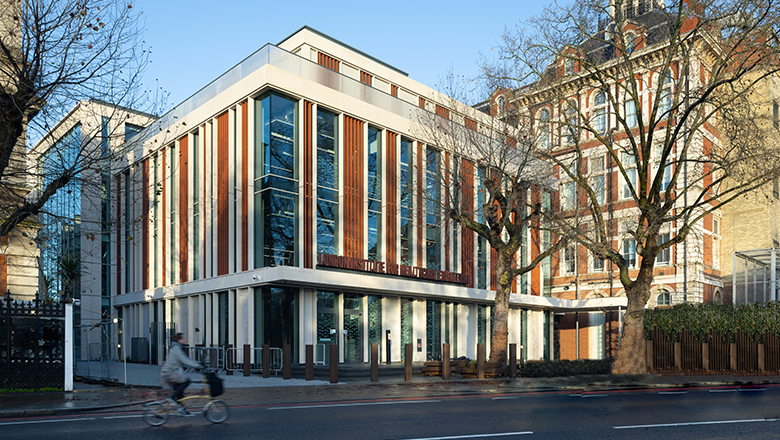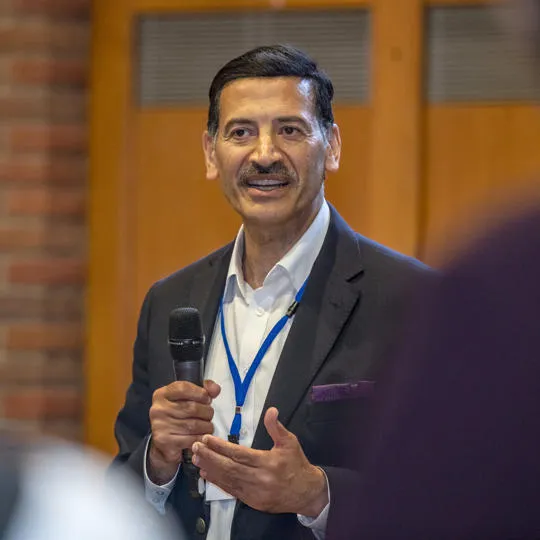King’s is committed to service to society, working with partners, both on our doorstep in London and across the world, to tackle important global challenges head-on. These results celebrate the continued effort from colleagues across King’s turning these ambitions into reality.
Professor ‘Funmi Olonisakin, Vice-President (International, Engagement and Service)
18 September 2024
King's performs strongly for the fourth year running in the Knowledge Exchange Framework
King’s College London has again ranked among the top English universities in this year’s Knowledge Exchange Framework results

First launched in 2019, the Knowledge Exchange Framework (KEF) is an annual assessment of English higher education institutions that measures how universities transfer their knowledge to different types of partners in order to benefit the economy and society beyond academia.
By assessing the knowledge exchange activities of institutions, the KEF aims to help universities understand their performance, ensure public funding used in knowledge exchange is effective, and to allow for comparisons between clusters of similarly sized universities.
King’s belongs to Cluster V, which is defined as: “very large, very high research intensive and broad-discipline universities undertaking significant amounts of excellent research.” Cluster V encompasses 17 institutions in total, including Imperial, UCL, Edinburgh, Manchester, Oxford, and Cambridge.
The KEF results are divided into seven perspectives, which covers the wide breadth of Knowledge Exchange activities undertaken across the sector. In the new results King’s ranked at or above the cluster average in six of the seven perspectives and has scored in the top quintile (top 20% of universities) for two perspectives; Research Partnerships, and IP and Commercialisation.
King’s Commitment to Knowledge Exchange
King’s has an ambitious Knowledge Exchange agenda and has been driving forward progress in supporting King’s research to make a positive difference in the world.
The opening of the London Institute for Healthcare Engineering (LIHE) supports King’s success across many of the KEF perspectives, including Working with Business and Working with the Public and the Third Sector. LIHE is dedicated to bringing MedTech innovations to patients and the market by offering executive support for medical innovations from across the UK - giving MedTech entrepreneurs the confidence to proceed at pace from bench to bedside to boardroom.
Further, the launch of Innovation@King’s, which has been hugely successful in supporting the creation of new spinouts from King’s research, also helped secure King’s position in the top quintile for IP and Commercialisation. Innovation@King's enables entrepreneurs to swiftly develop from early research stages to commercialisation by providing hands-on support.
We have been focussing our strategic effort to increase support for Innovation and Knowledge Exchange at King’s. Our London Institute for Healthcare Engineering is a wonderful example of how universities can support the commercialisation of MedTech, to bring products to patients and the market. Our KEF results recognise this commitment to Innovation.
Professor Bashir M. Al-Hashimi, Vice-President (Research & Innovation)
King’s new One King’s Impact Fund has announced more than £440,000 in awards in its first funding round, supporting projects to create positive change on global issues. This initiative highlights King’s commitment to Knowledge Exchange and the projects support King’s work across the KEF categories. The fund, with a second round planned for the autumn, is part of One King’s Impact, the whole-university approach which strengthens King’s ambition to be impact-driven in all that it does, uniting Education, Research and Service to deliver positive change for people, planet and society. In the first round of funding, supported projects include reducing the carbon footprint of King’s clinical skills education, supporting refugees seeking sanctuary for their family members, and addressing unequal outcomes to support black physics students.
This year also saw the inaugural King’s Engaged Research Awards, bringing together staff, students and community partners to recognise and celebrate how King’s best practice in public and community engagement leads to impactful and innovative research which serves society.


